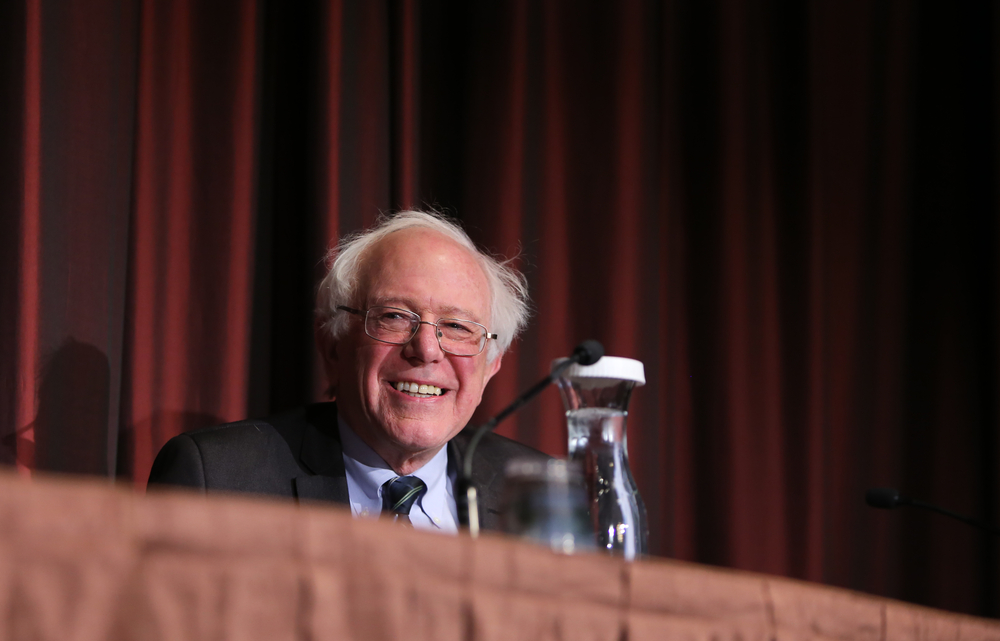Vermont Senator and 2020 presidential hopeful Bernie Sanders has revealed a new plan to eliminate student loan debt for over 45 million Americans.
Sanders is proposing that the federal government pay to wipe clean the $1.6 trillion in student debt held by 45 million Americans– including all private and graduate school debt– as part of a plan called “The College for All Act”.
Sanders’ bill would furthermore cap student interest rates at no greater than what the federal government pays for its financial obligation. The point here is so the federal government isn’t benefiting off student loan programs. Additionally, the bill will supply at least $1.3 billion each year to eliminate or minimize tuition and fees for low-income students at two- and four-year, private not-for-profit traditionally black universities.
The proposal goes further than fellow political rival Elizabeth Warren’s strategy, which caps student debt forgiveness at $50,000 and offers no relief to customers who make more than $250,000.
While the plans vary on how they would raise the money to pay off the country’s outstanding trainee financial obligation, both proposals look to boost the middle class by erasing a monetary concern that can make it harder for households to manage a house or automobile. Since the end of the 2008 recession, the nation’s outstanding student loan debt has more than doubled, rising from $700 billion in 2009 to $1.6 trillion today.
Sanders plans to fund his student loan forgiveness plan through a new tax on financial transactions, which he predicts could raise more than $2 trillion over the next decade. The tax plan will consist of a 0.5% cost on all stock trades, a 0.1% fee on all bond trades and a 0.005% cost on all derivatives trades.
Senator Sanders told The Washington Post, “This is truly a revolutionary proposal,” adding “In a generation hard hit by the Wall Street crash of 2008, it forgives all student debt and ends the absurdity of sentencing an entire generation to a lifetime of debt for the ‘crime’ of getting a college education.”
Critics say Sanders and Warren’s strategy is too costly and fails to target customers who many require relief, while advocates argue that the proposition attends to a debt burden that has actually ballooned over the last years and has actually stunted the monetary lives of a generation of Americans.
Sanders overtakes Warren
Sanders’ announcement comes at a time when second place in Democratic primary polling, behind former Vice President Joe Biden, appears up for grabs– with Warren increasing in recent voter surveys. With this most current, in-depth pitch, Sanders intends to solidify his credentials as the most progressive candidate in a field that has mostly embraced the priorities he brought to a national audience in 2016.
The proposition is likely to spark new criticism from Democratic moderates, who have attempted to cast themselves as practical options to Sanders’ efforts to fundamentally rebuild the country’s financial system.
Other Democrats have concluded that a blanket, all-inclusive debt forgiveness plan would intensify the gap between black and white wealth since white individuals tend to look for advanced degrees in higher numbers– and for that reason may benefit more from a loan reduction policy that does not take income into account.
Joe Biden, for his part, had previously expressed support for free college when he was vice president. But in a January interview, he scoffed at and mocked millennials– many of whom are having a hard time to purchase a home and obtain financial stability because of the extreme debt they are facing.







